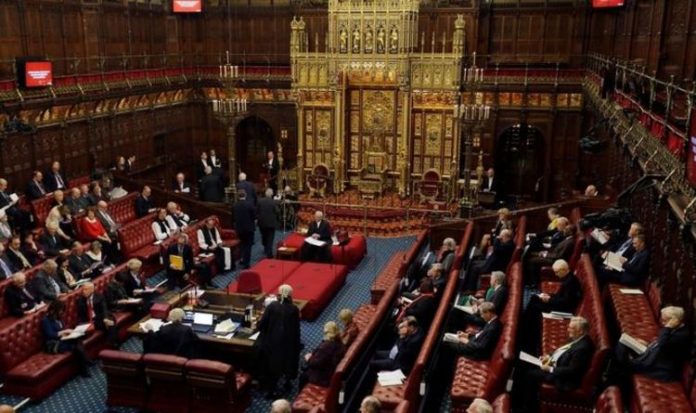On July 31, 36 new peerages were announced to a barrage of criticism over the background of some of the nominations. Analysing the appointments, the Electoral Reform Society has revealed shocking figures which they claim shows why the Lords needs to be changed. Among the new peers, 58 percent were formerly elected politicians before being given a seat in the Upper House.
Additionally, not one of the current 800 members of the house has a primary working background in manual work or skilled trades.
Chief Executive of the Electoral Reform Society, Darren Hughes has demanded the Government implement reforms to make the Lords more representative.
He said: “Far from being a bastion of independence, these findings show that the House of Lords is packed with ex-MPs and party activists – handed votes on our laws for life with no accountability.
“This latest batch of cronyistic appointments only exacerbates the problem.
“Despite No 10 briefing that these peerages would honour Britain’s medical heroes, the health sector is grossly under-represented.
“Instead, the PM’s pals in journalism and finance have been rewarded, while the full breadth of experience in Britain is unheard.
“The Lords was already warped – and it’s getting worse. Voters have had enough.
“This private member’s club has got to be overhauled, to give voters the final word on who sits in our revising chamber.
JUST IN: Westminster at war: Lords diversity row laid bare amid abolition calls
Once the new batch joins the House of Lords, 30 percent will now have come from representative politics.
So far, over 340,000 people have signed a petition demanding the Upper House be reformed.
Despite being committed to changing the Upper House, Boris Johnson has been criticised over some of the new cohort of peers.
Among the include Mr Johnson’s chief strategic advisor, Sir Edward Lister and James Wharton who helped Mr Johnson become party leader in 2019.
It also includes former Brexit Party MEP Claire Fox who has refused to apologise for supporting the 1993 IRA bombing in Warrington.
The list contains more peerages than many in recent years bar David Cameron’s in 2015.
Mr Cameron’s nominations had 45 peerages on it in comparison to Mr Johnson’s 36.
However, the Prime Minister’s spokesman insisted reforming the Upper House was still on the agenda.
The spokesman denied any accusation that the policy had been abandoned.
They said: “It remains the case that the size of the House of Lords needs addressing, but given retirements and other departures, some new members are needed to ensure the Lords has appropriate expertise and it continues to fulfil its role in scrutinising and revising legislation.”







